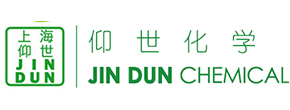How Alkali-resistant Chelating Dispersant Improves Metal Cleaning Processes
2023/4/20
Metal cleaning is a vital step in many industries that involve metal processing and fabrication, such as automotive, aerospace, electronics, machinery, construction, and metal finishing. Metal cleaning aims to remove oily and particulate soils from metal substrates, using solutions of alkaline salts, such as caustic, silicates, and phosphates, along with surface active agents. However, metal cleaning can also pose challenges such as corrosion, staining, and unevenness of the metal surface, especially when hard water or high levels of metal ions are present. To overcome these challenges, it is essential to use a suitable alkali-resistant chelating dispersant in the alkaline cleaning solution.
Alkali-resistant chelating dispersant is a type of chemical agent that can prevent scale and other impurities from forming and depositing on metal surfaces during alkaline cleaning processes. Scale is a hard and insoluble layer of mineral salts that can adhere to metal surfaces and interfere with the cleaning process. Scale can also cause problems such as reduced heat transfer, increased energy consumption, decreased product quality, and increased maintenance costs. Alkali-resistant chelating dispersant works by forming stable complexes with metal ions, such as calcium, magnesium, iron, and copper, and preventing them from reacting with the alkaline salts or the metal substrate. This way, the metal ions are kept in solution and do not form scale or other precipitates that can stick to the metal surface.
Alkali-resistant chelating dispersant can also disperse and solubilize existing scale and impurities, making them easier to wash off. Moreover, alkali-resistant chelating dispersant can improve the wetting and detergency properties of the alkaline solution, allowing it to penetrate and remove soils more effectively. Alkali-resistant chelating dispersant can also protect the metal surface from corrosion and staining by forming a thin protective layer.
Alkali-resistant chelating dispersant is usually added to the alkaline cleaning solution at a concentration of 0.5-5 g/L, depending on the type and amount of soil, the hardness of water, and the temperature and time of cleaning. Alkali-resistant chelating dispersant can be used for various types of metal substrates, such as steel, aluminum, copper, brass, zinc, and nickel. Alkali-resistant chelating dispersant can also be used for different modes of alkaline cleaning, such as spray, immersion, ultrasonic, or electrocleaning.
Alkali-resistant chelating dispersant is a valuable additive for alkaline cleaning processes, as it can improve the quality and efficiency of metal cleaning and prevent process defects. Alkali-resistant chelating dispersant can also reduce the environmental impact of alkaline cleaning by reducing the amount of chemicals and water needed for rinsing and neutralizing. Alkali-resistant chelating dispersant is widely used in various industries that involve metal processing and fabrication.

